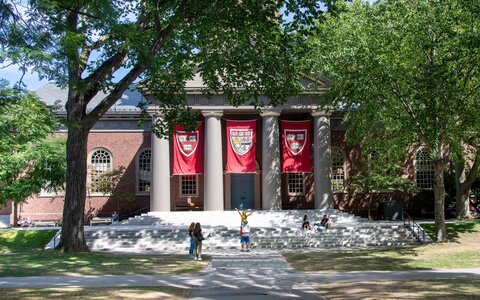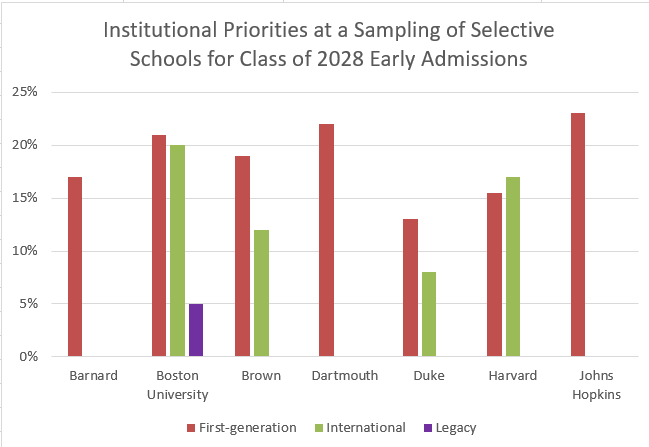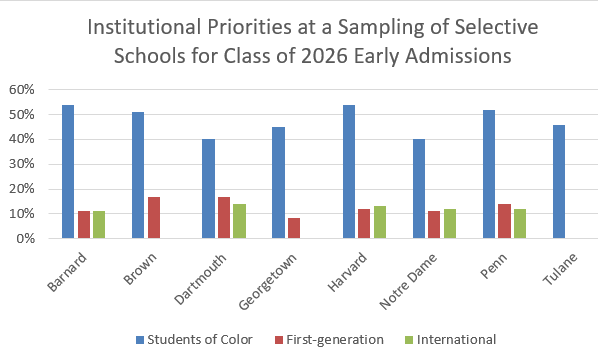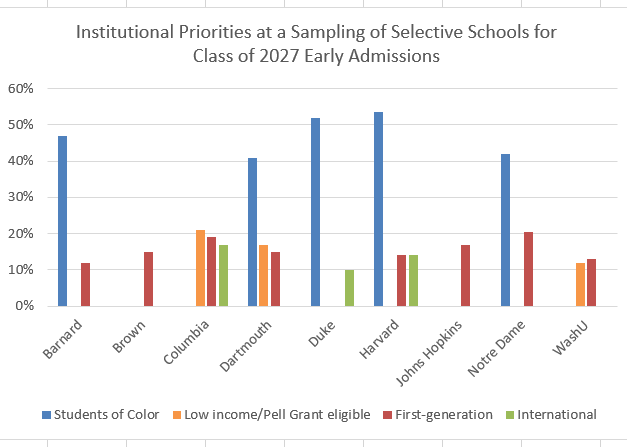 This is Part II of our series on Early Admissions for the Class of 2028. In the wake of the Supreme Court ruling this summer that declared race-conscious admissions unconstitutional, many are wondering how this will impact college admissions for the Class of 2028. This blog post takes a closer look at stats released for this year versus the past two years, and how colleges will continue to pursue diversity in forming their incoming classes. Take a look at Part I: Early Application Acceptance Rates for the Class of 2028 to understand overall trends in early applications and acceptance rates.
This is Part II of our series on Early Admissions for the Class of 2028. In the wake of the Supreme Court ruling this summer that declared race-conscious admissions unconstitutional, many are wondering how this will impact college admissions for the Class of 2028. This blog post takes a closer look at stats released for this year versus the past two years, and how colleges will continue to pursue diversity in forming their incoming classes. Take a look at Part I: Early Application Acceptance Rates for the Class of 2028 to understand overall trends in early applications and acceptance rates.
This year, in comparison to last year, colleges released very limited information about the diversity of their incoming early admits, mostly focusing on first-generation and international percentages.
Increased Diversity Continues to be a Priority
Many of the most selective colleges continue to use early admissions for the big “hooks”: underrepresented minorities, lower socioeconomic, first-generation, and international students, as well as recruited athletes and legacies. Last year, schools with a high percentage of applicants who self-identify as students of color included Barnard (47%), Dartmouth (41%), Duke (52%), and Harvard (54%).
BU, Harvard, and other universities have publicly stated that they remain committed to enrolling a diverse student population this year, but cannot release any racial demographics regarding early admits until the class is finalized after May 1. According to Harvard Dean of Admissions William Fitzsimmons, “Based on advice of counsel, [admissions] officers will not have access to data on race or ethnicity until the admissions process is entirely over.”
See the charts below showing the published data on institutional priorities for the Classes of 2027 and 2026 for a select group of colleges, illustrating the decrease in reporting over the past few years.
Many colleges are seeking top-quality students from diverse backgrounds through a variety of programs, including American Talent Initiative, QuestBridge, the KIPP Foundation, and A Better Chance. UVA partnered with the Virginia College Advising Corps to create relationships with 62 Virginia high schools in an effort to increase the number of underrepresented students applying early.
QuestBridge College Match Program has matched students with many top universities, as its goal is to “connect the nation’s most exceptional, low-income youth with leading colleges and opportunities.” This year, Duke admitted 97 students through QuestBridge, which is almost double the number admitted last year, and Yale admitted 72 students through QuestBridge. “New Yalies who match through QuestBridge receive a financial aid award that covers the full cost of tuition, housing and meals. Yale also provides hospitalization insurance coverage and a $2,000 start-up grant for each student’s first year.” Dartmouth admitted 74 students through QuestBridge, a new high for the school, and Rice matched with 77 QuestBridge scholars.
Many schools are also looking for an increase in first-generation students. Columbia, Harvard, Yale and 13 other selective schools have joined the Small Town and Rural Students (STARS) College Network to enhance access and awareness to students living in places where attending college is not usually considered an option. Yale and other highly selective schools are using databases such as Opportunity Atlas and the College Board’s Landscape to determine the economic mobility of applicants, based on schools and neighborhoods.
All of these efforts will hopefully result in more socioeconomically diverse early admits, as early admissions tends to favor the higher socioeconomic populations who have more access to resources such as college guidance and standardized test preparation. According to Georgetown’s Dean of Admissions Charles Deacon, Georgetown typically admits only 10% of early applicants. “We have always had a policy that says we will not favor early action, because we think the pool is slightly balanced toward the more successful, more affluent students who are ready earlier.” Many schools, including Georgetown, are working to build up their financial aid program and increase their Pell Grant population.
Colleges continue to value diversity and are encouraging applicants to discuss the impact of their “lived experiences” through application essays. According to Forbes, “The most common response from colleges this fall was to create a diversity question on the application.” Deciding how to highlight the many facets of your background and interests can feel complicated. But whatever your question, Collegiate Gateway is happy to help you decipher your options and understand the changing landscape of early admissions.



